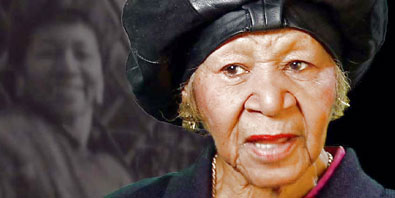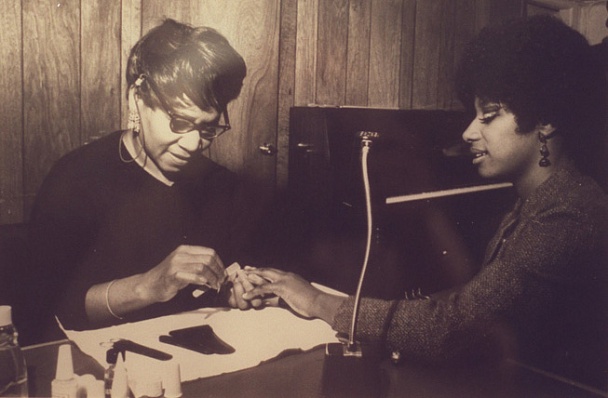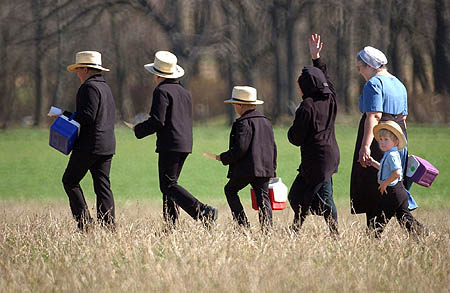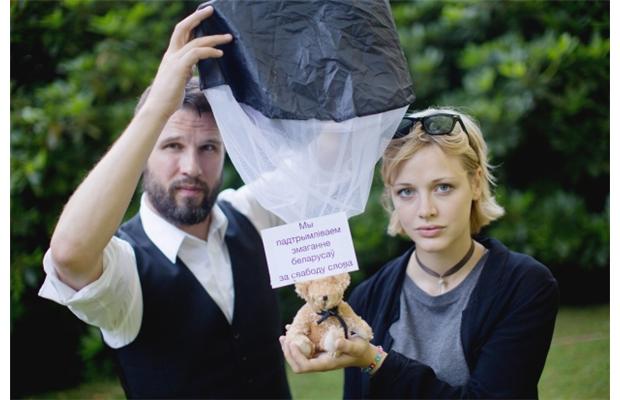I come from a world of careful preparation.
Dot was an anesthesiologist who knew that you always got 8 things ready before you did the 9th thing, even when it was going to the beach. Frank was an engineer who was carefree to the point of irresponsibility in his off-duty life, but methodical in his professional one. I don’t remember my parents throwing themselves into projects and learning while they went along. Not even once.
Sometimes, though, preparation can be an impediment, even an excuse to avoid jumping in and figuring out how it all fits together.
Judging when you’re ready to “just do it” is part science and part art. The art is in knowing when jumping in could be good for you—that you’re talented and resilient enough to profit from the experience. It comes from the suspicion that learning it while you’re doing it will get you where you’re going a whole lot faster. So whether you take this advice also has to do with self-confidence, or your lack of it.
I don’t know whether Frank Wilczek knew that he was headed for a Nobel Prize when he took his leap from mathematics to physics with little of the necessary groundwork, but he certainly wanted to get someplace in a hurry. This is what he said about jumping into his new discipline in a recent essay:
“My approach was different. I hadn’t taken many physics courses, so my preparation had gaping holes. I could manipulate the physics equations as abstract mathematical symbols, but I often had only vague notions about what the symbols meant. Conversely, if you told me about a situation in the physical world, I might have trouble figuring out which equations applied.
Nevertheless, I resolved to leap right to the frontiers of research. I found a great thesis advisor… and an important problem, and I went for it. I picked a subject area where nobody really knew what they were doing, so I didn’t start so far behind. I learned or improvised what I needed as I went along, made lots of mistakes –and got my thesis done quickly.” (emphasis added)
Wilczek didn’t recklessly jump off a cliff, but hedged his bets in a new area “where nobody really knew what they were doing” so he wouldn’t be so far behind. (That kind of judgment is pure art.) He also jumped because he didn’t know about either the meaning or the application of what he did know already, and that more preparation wasn’t going to solve either problem. (That kind of feeling seems more like instinct.) Wilczek sensed that what your actions mean and how your knowledge can be applied will only be learned by doing it.
In 2004, Wilczek won physics highest prize for a subject I can name—asymptotic freedom in the theory of the strong interaction—but not describe. When it may have counted most, his talent and ambition were undeterred by his lack of preparation for achieving it.

Sometimes you write to yourself as much as to others.
I’ve often risked the death of a good idea by over-preparing instead of just grabbing it and running as fast as I could for the horizon. I call it the eat-first-jump-later phenomenon, because the eating almost always makes you too full to jump. I’ll do it later, after a nap and a walk with the dog, even though I know that it’s better to jump on an empty stomach.
So I’ve often been over-prepared and under-experienced, like I suspect many introverts are. Too much time spent in our heads and not enough outside of them.
There’s fear in over-preparers too, of course. What if I get it all wrong? (Nobody gets everything wrong.) What if I embarrass myself? (What, in front of the bystanders who aren’t risking much of anything?) I mean: what if ALL I show is how much I don’t know? (Well that dimension of embarrassment can spur your effort to avoid more of the same the next time around.)
Little experience jumping into action can also make you oblivious to the likely consequences when you finally do have the impulse or summon the courage. You’ve simply never learned how it’s best to feel and act in the heat of the moment.
Many years ago, I remember tripping and falling on an uneven sidewalk at the Penn campus. A group of West Philly teenagers watched me fall, and one started shrieking with laughter. I got up, approached, and with the side of my shoe upper cut her ample butt saying: “What’s wrong with you?” Of course, it was about what was wrong with me, but I couldn’t help myself. How much better if I’d been able to go over and thank her for giving me the best reason yet to watch where I was going. It would have demonstrated my self-control, and probably startled her more than I did with the bounce of my foot.
Mistakes are not excuses for your anger or confrontation. Instead, they’re lessons (gifts really) to learn from. I could merely have said, “Thank you young lady,” if I’d had more experience, on the ground, both making mistakes and handling their consequences.
So I’ve come to appreciate that the best antidote for the over-preparers and under-experienced is practice in taking those first steps into the relative unknown. Each time is an occasion to trust that your instincts, know-how and better angels will help you make it to the other end.

Just like learning how to cook one simple meal instead of learning “how to cook,” the first step can be a simple one and, by hedging your bets, you can improve your chances of building self-confidence and overcoming your fears when the next opportunity beckons.
As a line from one of our Nobel laureate’s fortune cookies famously said: “The work will teach you how to do it”—in ways that preparation never can.






